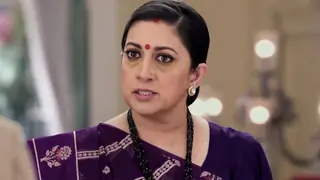Critique: Samar’s Spirit Track — When Emotion Turns into Exploitation :
The makers of Anupama have clearly decided that logic, pacing, and narrative depth are optional — as long as there’s background music and tears. Because how else do you explain this bizarre “Samar’s spirit visits Anupama” track?
Instead of portraying genuine grief or showing Anupama dealing with her pain like a mature, evolving woman, the writers have gone full supernatural. We now have Samar’s ghost popping up to deliver emotional lectures and moral support — the same things the living characters in this show conveniently never provide.
Every conversation between Anupama and Samar’s spirit feels painfully forced. The dialogue writing has lost all sincerity — it’s just the same recycled lines about “Maa, aap mahaan hain”, “Aap justice dilayengi”, and “Main hamesha aapke saath hoon.” It doesn’t touch your heart anymore; it feels like emotional blackmail packaged as spirituality.
Anupama’s Handling of Samar — The Uncomfortable Truth :
Let’s be brutally honest. Samar was always the most loyal, kind, and supportive child Anupama had. Yet she never truly prioritized him.
When he was alive, he was constantly put on emotional standby while she ran to fix everyone else’s drama.
Whenever he needed her time or understanding, she was busy being “the universal caretaker”.
And when he tried to express his individuality, she either lectured him or guilt-tripped him into silence.
For all her claims of being “maa sabke liye”, she never stopped to ask what Samar truly wanted for himself. His dreams, his growth — always secondary to her emotional turmoil.
And now, posthumously, the writers are glorifying the same pattern. Instead of letting Anupama reflect on her shortcomings as a mother, the spirit track whitewashes everything — turning Samar into a cheerleader for her guilt rather than a voice of truth.
The Real Problem — No Growth, Just Repetition :
This could have been a moment of genuine introspection. Anupama could’ve realized how her own emotional imbalance affected her children. Instead, the writers chose melodrama over meaning.
The whole “spirit justice” angle feels like a desperate attempt to evoke sympathy without actually writing a story. No realism, no legal fight, no closure — just background music and monologues in dim light.

































17